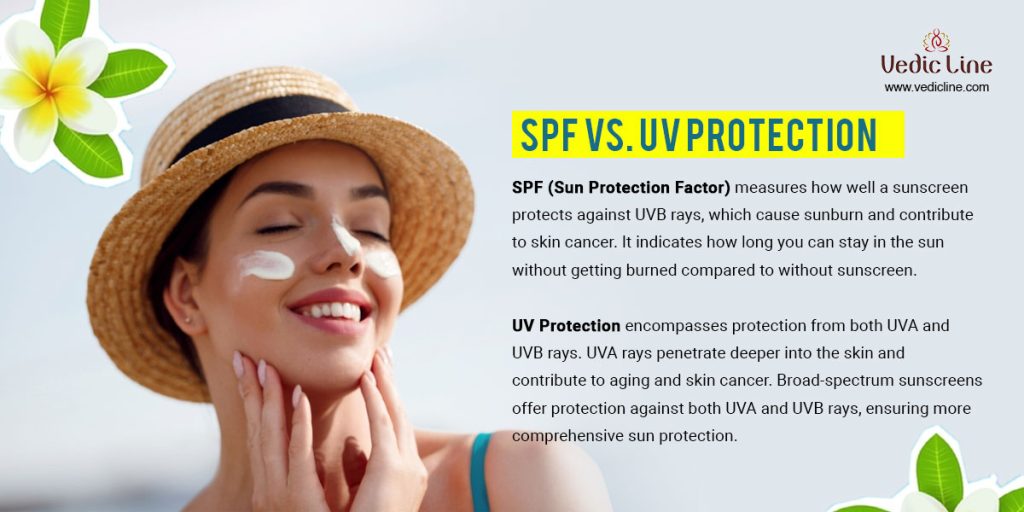In the realm of skincare, the importance of daily sunscreen is often underestimated. Many people see it as an optional step, rather than a non-negotiable part of their routine. However, applying sunscreen daily is one of the most effective ways to protect your skin from harmful UV rays and maintain its health and appearance over time. This blog delves into why daily sunscreen for the face is crucial and how it can significantly impact your skin’s well-being.
Understanding UV Rays
To grasp the significance of sunscreen, it’s essential to understand the nature of UV rays. Ultraviolet (UV) radiation from the sun is divided into two main types that affect the skin: UVA and UVB.
- UVA rays penetrate the skin more deeply and are primarily responsible for aging signs like wrinkles and fine lines. They can pass through windows and affect your skin even indoors or on cloudy days.
- UVB Rays: These rays are more intense and are responsible for causing sunburn. They have a shorter wavelength and can directly damage the skin’s outer layers, leading to sunburn and an increased risk of skin cancer.
Both UVA and UVB rays contribute to skin damage and accelerate the aging process, making daily sunscreen application crucial.

The Role of Sunscreen in Skincare
- Prevents Sunburn and Skin Cancer: One of the most straightforward reasons to use sunscreen is to prevent sunburn. Severe sunburn can damage your skin and increase the risk of developing skin cancer. Sunscreen with broad-spectrum protection helps block both UVA and UVB rays, reducing the likelihood of sunburn and long-term skin damage.
- Protects Against Premature Aging: Exposure to UV rays accelerates the breakdown of collagen and elastin fibers in the skin. This can lead to premature aging signs such as wrinkles, fine lines, and age spots. Regular use of sunscreen helps shield your skin from these harmful effects, keeping it looking youthful and healthy.
- Maintains Even Skin Tone: UV rays can cause pigmentation issues, including dark spots and uneven skin tone. Sunscreen helps prevent these problems by reducing the risk of UV-induced hyperpigmentation. For those with existing pigmentation issues, using sunscreen consistently can help prevent them from worsening.
- Supports Overall Skin Health: Sunscreen isn’t just about preventing visible damage; it’s also about maintaining overall skin health. UV exposure can weaken the skin’s barrier function, leading to dryness, irritation, and increased sensitivity. By using sunscreen, you help keep your skin’s barrier intact and support its natural defense mechanisms.
Selecting the Right Sunscreen
When selecting a sunscreen for your face, consider the following factors to ensure you get the most effective protection:
- Broad-Spectrum Protection: Choose a sunscreen labeled as “broad-spectrum,” meaning it protects against both UVA and UVB rays. This ensures comprehensive protection from the sun’s harmful effects.
- SPF Rating: The SPF (Sun Protection Factor) rating indicates how well the sunscreen protects against UVB rays. An SPF of at least 30 is advised for everyday use. Higher SPF ratings offer greater protection but should not be solely relied upon for extended sun exposure.
- Skin Type Compatibility: Select a sunscreen that suits your skin type. If you have oily or acne-prone skin, opt for a non-comedogenic formula that won’t clog pores. For dry skin, choose a hydrating sunscreen with added moisturizing ingredients.
- Water Resistance: If you’re engaging in activities that involve sweating or swimming, choose a water-resistant sunscreen to ensure it stays effective even when exposed to moisture.

Making Sunscreen a Part of Your Routine
For sunscreen to be effective, it must be applied correctly and consistently. The following advice can help you incorporate it into your everyday schedule:
- Apply Generously: Use about a nickel-sized amount of sunscreen for your face and neck. Make sure to apply it evenly and cover all exposed areas.
- Reapply Regularly: Sunscreen should be reapplied every two hours, especially if you’re outdoors or engaging in activities that may cause sweating or rubbing off the product.
- Use Sunscreen Daily: Even on cloudy days or when staying indoors, UV rays can still reach your skin. Make sunscreen a part of your daily routine to ensure consistent protection.
- Combine with Other Sun Protection Measures: Sunscreen should be used in conjunction with other sun protection measures, such as wearing protective clothing, seeking shade, and avoiding peak sun hours.
Addressing Common Misconceptions
- “If it’s cloudy, You don’t need sunscreen.” Even with cloud cover, UV radiation can still damage your skin. Wearing sunscreen is recommended in all weather conditions.
- Sunscreen Is a Summertime Thing.” Since UV rays are prevalent all year round, sunscreen should be used every day—even in the winter.
- “My Makeup Contains SPF, So I Don’t Need Additional Sunscreen.” While some makeup products contain SPF, they usually don’t provide sufficient protection on their own. It’s best to use a dedicated sunscreen as a base layer before applying makeup.

End of Words
Daily sunscreen application is a fundamental step in any skincare routine. It offers crucial protection against UV rays, helps prevent premature aging, maintains an even skin tone, and supports overall skin health. By choosing the right sunscreen for your face and making it a part of your daily routine, you invest in the long-term health and appearance of your skin. Make sunscreen your skincare staple and enjoy the benefits of protected, radiant skin for years to come.



